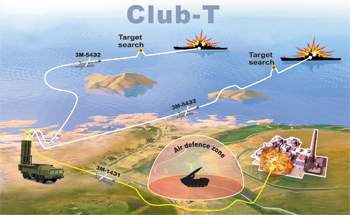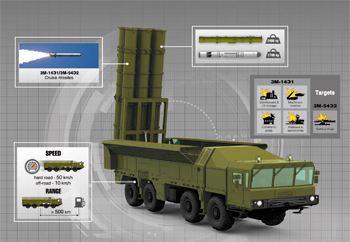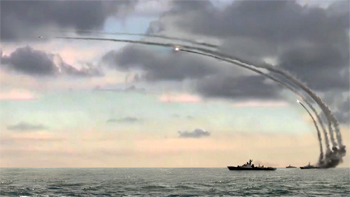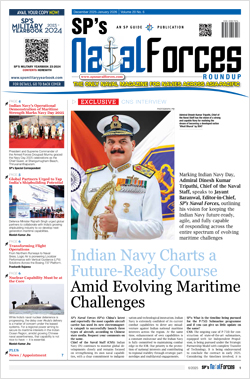INDIAN ARMED FORCES CHIEFS ON OUR RELENTLESS AND FOCUSED PUBLISHING EFFORTS

The insightful articles, inspiring narrations and analytical perspectives presented by the Editorial Team, establish an alluring connect with the reader. My compliments and best wishes to SP Guide Publications.

"Over the past 60 years, the growth of SP Guide Publications has mirrored the rising stature of Indian Navy. Its well-researched and informative magazines on Defence and Aerospace sector have served to shape an educated opinion of our military personnel, policy makers and the public alike. I wish SP's Publication team continued success, fair winds and following seas in all future endeavour!"

Since, its inception in 1964, SP Guide Publications has consistently demonstrated commitment to high-quality journalism in the aerospace and defence sectors, earning a well-deserved reputation as Asia's largest media house in this domain. I wish SP Guide Publications continued success in its pursuit of excellence.
- Global Partners Urged to Tap India's Shipbuilding Potential: Rajnath Singh at Samudra Utkarsh
- All about HAMMER Smart Precision Guided Weapon in India — “BEL-Safran Collaboration”
- India, Germany deepen defence ties as High Defence Committee charts ambitious plan
- G20 Summit: A Sign of Global Fracture
- True strategic autonomy will come only when our code is as indigenous as our hardware: Rajnath Singh
- India–Israel Joint Working Group Meeting on defence cooperation to boost technology sharing and co-development
Marketing Feature
CLUB-T UPGRADED WITH ANTI-SHIP MISSILE



Strike complex CLUB incorporating both the anti-ship cruise missile with a supersonic combat stage and the land-attack missile has been present at the international arms market for about 20 years. At first the complex served to arm submarines (named CLUB-S); then its OEM modified the complex for various carriers, namely, for surface ships (CLUB-N), aircraft (CLUB-A), self-propelled vehicle of the coast defense complex CLUB-M.
Though the placement of strike missiles on a mobile chassis was a natural step to involve new customers, currently there is no news neither on the contracts for the CLUB-M, nor on the plans of anybody to buy it. The probable reason is that the complex has proved monstrous since includes, besides the missile launchers per se, many separate functional units like mobile means of reconnaissance and targeting, of communication and control, of flight mission preparation, etc.
This experience was minded while creating another offspring of the CLUB family, the CLUB-T, first shown by the NOVATOR design bureau at the GDA 2017 exhibition in December 2017 in Kuwait. As opposed to the predecessor, all the equipment required for routing, for missile pre-launch preparation and launch, for communication, etc. is now placed on a self-propelled chassis together with six missiles in transport-and-launch canisters. The option shown in Kuwait had only land attack missile (named 3M-14E1). Its combat use is similar to any other land-attack CLUB missile (see Fig.1).
Since all the known CLUBs can attack both sea-surface and land targets using common both launcher and fire control system, it looks reasonable to include into the CLUB-T an anti-ship missile (designated 3M-54E2). It is being demonstrated by the CLUB-T OEM at the DEFEXPO-2020 exhibition. All the equipment necessary for this missile preparation and launch is also placed on the self-propelled chassis. For the missile combat use diagram, also see Fig.1.
The main features of the CLUB-T complex missiles are as follows:
- takeoff mass – 1700 kg,
- warhead mass – 450 kg,
- flight speed at cruise – about 240 m/sec,
- flight altitude:
- over land from 50 m (for surface skimming) to 2000 (to fly over mountains)
- over sea 20m (on the route), 5 m (before target)
- firing accuracy:
- land targets – maximum miss 50 m
- sea targets – direct hit
The customer may order either two different missiles or a bit more costly universal missile to attack both land and sea-surface targets. To include an anti-ship missile into the CLUB-T complex is a way to considerably improve its marketability. The complex design ensures such important features like high mobility, autonomous and simple operation with minimum number of combat units resulting in minimum expenses for the complex acquisition and exploitation.
The successful combat use of the KALIBR complex was favorable also to its export version, the CLUB. The availability of such weapon would make any aggressor think twice. For the country not having enough resources for powerful Navy, having the CLUB-T would safeguard its sea and land border.





